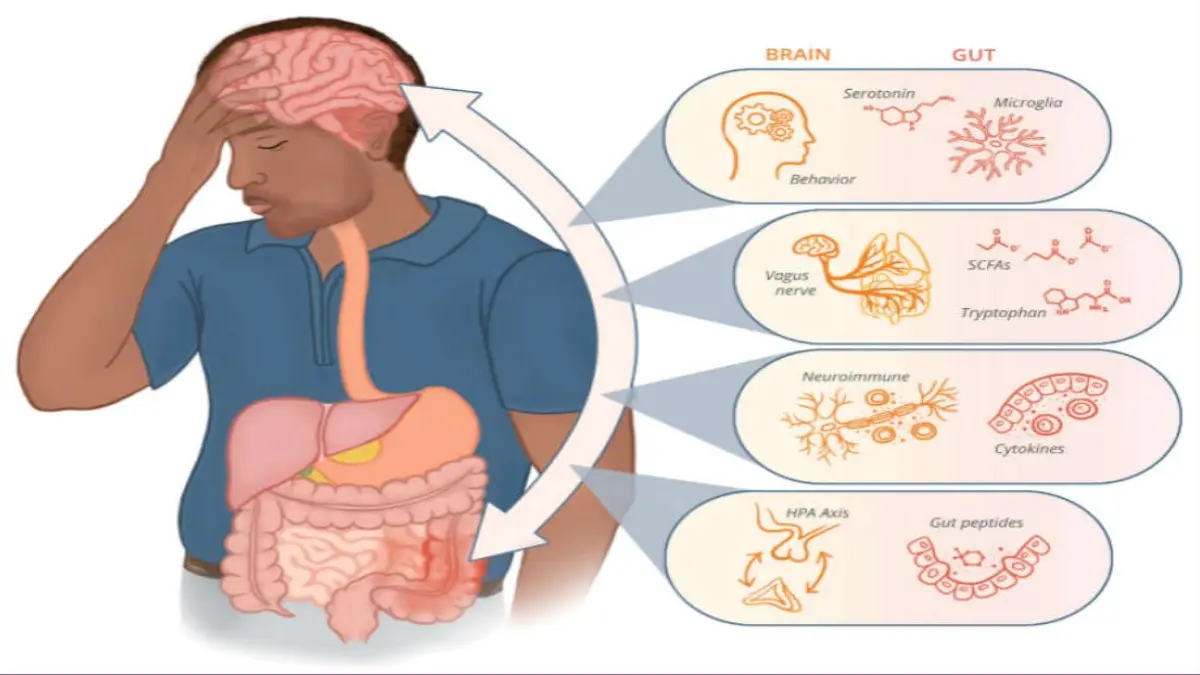Dr. Sanjog Mekewar
Unlocking the Secret of Health: The Essential Role of Healthy Gut Bacteria in Pain
The saying, “You are what you eat,” might have more truth to it than you initially think. The state of your gut health plays a vital role in your overall health and well-being. A balanced gut microbiota, brimming with healthy bacteria, can benefit you in numerous ways, including enhancing your body’s immune response, aiding digestion, and even managing chronic pain. Let’s delve deeper into the fascinating world of gut health, discover the ways gut bacteria can improve your well-being, and explore the ways you can nurture your gut microbiota.

The Importance of Gut Health
Your gut is not just a digestive organ. It’s a complex ecosystem, home to trillions of microorganisms, including bacteria, viruses, and fungi. This microbial community, referred to as your gut microbiota, has a significant influence on your overall health. It aids in the extraction of energy and nutrients from your food, bolsters your immune system, and can even affect your mood and mental health.
Gut Health and Pain Management
As a Pain Management Clinic, we often emphasize the important role gut health plays in pain management. Emerging research suggests that an imbalance in your gut microbiota, known as dysbiosis, could contribute to chronic pain conditions. Conditions like fibromyalgia, migraines, and even arthritis have been linked to unhealthy gut microbiota.
Healthy gut bacteria produce various substances, including short-chain fatty acids (SCFAs) like butyrate, propionate, and acetate. These SCFAs have anti-inflammatory properties that can help control and manage pain. Thus, maintaining a healthy gut microbiota can potentially ease pain levels, boost your pain tolerance, and improve your quality of life.
Additionally, your gut microbiota interacts with the enteric nervous system (ENS), often termed your ‘second brain.’ The ENS communicates with the central nervous system, impacting various bodily processes, including pain perception. Imbalances in gut bacteria could disrupt this communication, potentially leading to increased pain sensitivity.
Cultivating a Healthy Gut for General Health
Optimal gut health benefits more than just pain management. A healthy gut is the cornerstone of general health. Here are the key roles of a healthy gut:
- Boosting Immunity: A significant portion of your immune system is located in your gut. A balanced microbiota helps strengthen your immune system, protecting you from harmful pathogens and preventing autoimmune disorders.
- Aiding Digestion: Healthy gut bacteria assist in breaking down food and absorbing nutrients, ensuring your body gets the nutrients it needs.
- Mental Health: The gut-brain axis is a communication channel between your gut and brain. Changes in gut microbiota could affect your mental health, influencing conditions like depression, anxiety, and stress.
Nourishing Your Gut Bacteria
Caring for your gut bacteria is akin to maintaining a flourishing garden. Here’s how you can nurture your gut microbiota:
- Diversify Your Diet: A varied diet rich in fruits, vegetables, legumes, and whole grains provides the necessary nutrients for your gut bacteria to thrive.
- Include Probiotics and Prebiotics: Probiotics are ‘good’ bacteria, while prebiotics are food for these bacteria. Including fermented foods like yogurt, kimchi, and sauerkraut in your diet can supply beneficial bacteria. Foods rich in fiber act as prebiotics.
- Avoid Overuse of Antibiotics: While antibiotics are crucial for treating certain infections, unnecessary usage can disturb your gut microbiota.
Conclusion
In a nutshell, nurturing your gut health can serve as a crucial strategy for managing chronic pain and improving general health. While this area of research is still growing, it’s clear that gut bacteria are more than just silent passengers. They are active participants in your well-being.
Incorporating a gut-friendly diet and lifestyle could be a powerful tool in your arsenal for pain management and general health. As always, we recommend you discuss any major dietary or lifestyle changes with a healthcare professional.

 Blogs
Blogs